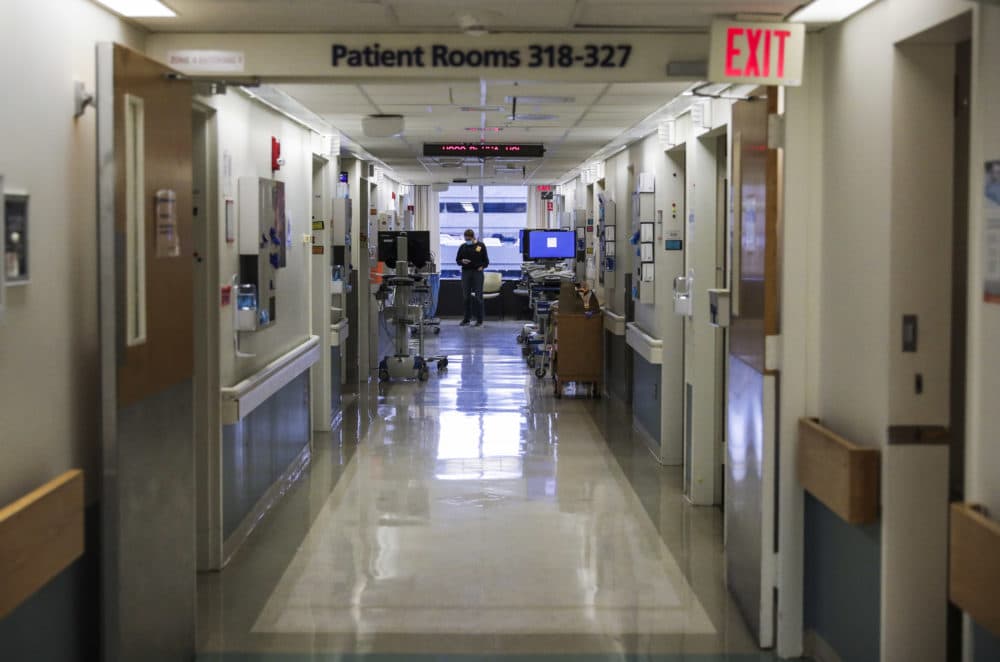Advertisement
Coronavirus Coverage
After two years of COVID, many hospitals feel unprepared to manage future crises

Massachusetts hospitals have worked together to manage the COVID pandemic for over two years and have learned to respond quickly to an ever-changing crisis. But many hospital leaders believe they are unprepared to face a future public health emergency.
In a survey from the Massachusetts Health & Hospital Association, slightly fewer than half of hospital leaders — 49% — said they felt prepared for the next emergency — whether it’s another disease outbreak, a mass casualty event, climate change-related disaster or something else.
Hospital leaders said they’ve learned lessons from the pandemic, including the importance of setting aside competition and collaborating to weather new challenges.
But they are ill-equipped to face new crises because their workforce is tired and depleted.
Staffing shortages have worsened during the pandemic as droves of health care workers have left their jobs. Hospitals are struggling to find enough doctors, nurses, technicians and other workers.
This is happening as waves of sick patients are seeking medical care, including those who deferred regular screenings and appointments because of concerns about COVID.
Jody White, chief executive of Lowell General Hospital, said the pandemic has exposed the fragility of the health care workforce — and of hospital finances.
“I've never seen staffing shortages like we're seeing right now,” he said.
“We're just so unstable right now, that to take on a whole ‘nother burden of, for example, another pandemic, and to shut off elective surgeries again — one plus one could equal six if we're not careful.”
The hospital association’s report, released Wednesday, also said public officials should work to improve supply chains to ensure that health care facilities don’t fall dangerously low on stores of personal protective equipment, such as high-quality masks and gowns, during a future emergency.
It also stressed the need for hospitals and the state to continue close communication in times of crisis.
Advertisement
But the most critical challenge, hospital leaders told WBUR, is attracting and retaining staff. One idea is a statewide campaign to recruit a new generation of health care workers, said Valerie Fleishman, chief innovation officer at the hospital association.
Another is to launch loan forgiveness or tuition reimbursement programs that make it more affordable for people to start careers in health care.
“Addressing the workforce challenges — we have to do that to prepare ourselves for the next public health emergency,” Fleishman said.
